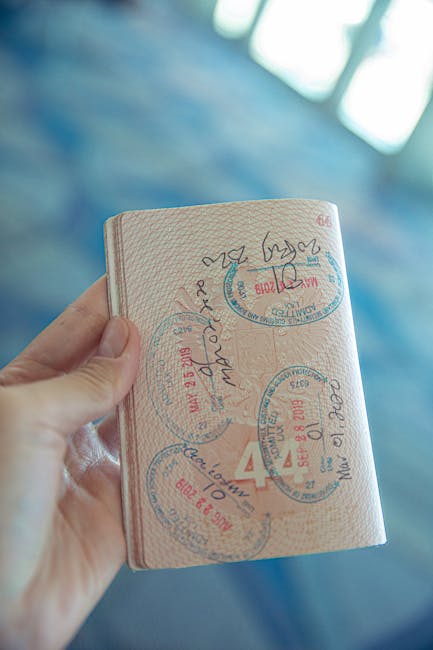Visa Documentation for Nepali
The full scope of Visa Documentation for Nepali housekeeping staff abroad includes passports, work permits, and medical tests. Each document must meet specific standards set by the destination country. Consequently, attention to detail is paramount for a successful application. This guide provides a clear roadmap for aspiring migrant workers and their employers.
Understanding Visa Documentation for Nepali
Visa documentation refers to the official papers required for legal entry and work. For Nepali citizens, this process starts within Nepal itself. Typically, the Department of Foreign Employment oversees initial approvals. Therefore, applicants must follow both Nepali law and the destination country’s regulations.
Key documents include a valid Nepali passport and a labor permit. Additionally, a finalized employment contract is mandatory. This contract must be verified by the Nepali government. Consequently, engaging with a reputable agency like our professional resources is highly advisable.
Visa Documentation for Nepali Benefits
Proper documentation provides legal protection for the worker abroad. It ensures eligibility for fair wages and safe working conditions. Moreover, it grants access to consular services if problems arise. Therefore, comprehensive Visa Documentation for Nepali staff is non-negotiable for ethical employment.
It also benefits employers by ensuring a lawful workforce. This compliance avoids heavy fines and legal penalties. Furthermore, it promotes a stable and productive working environment. For detailed guidelines, always refer to International Labour Organization guidelines.
How Visa Documentation for Nepali Works
The process begins with securing a job offer from an overseas employer. Next, the employer must obtain work permit approval from their country. Then, the Nepali worker applies for a visa at the respective embassy. This sequence requires precise timing and complete paperwork.
Medical examinations are often required at approved clinics. These tests check for infectious diseases and overall health. Additionally, some countries demand police clearance certificates. Thus, starting early is crucial to meet all deadlines.
Best Visa Documentation for Nepali Practices
Always use exact name matching on every single document. Discrepancies between passports, contracts, and permits cause immediate rejection. Furthermore, keep multiple copies of every paper, both physical and digital. This practice simplifies replacement if originals are lost.
Translate all documents into the official language of the destination country. Use certified translators for accuracy. Moreover, get all translations notarized for official validity. For economic context, review World Bank economic reports on migration.
Visa Documentation for Nepali Implementation
Implementation requires meticulous organization. Create a checklist of all required documents for your target country. Then, gather each item systematically, checking them off as completed. This method prevents overlooking critical components.
Schedule appointments for medical tests and embassy submissions well in advance. Delays are common, so plan for extra time. Additionally, be prepared for unexpected requests for more information. For expert help, consider an schedule appointment with our team.
Advanced Visa Documentation for Nepali Strategies
Engage with immigration lawyers who specialize in your destination country. Their expertise can navigate complex legal nuances. Furthermore, they can expedite processes through established channels and relationships. This strategy is valuable for difficult cases or new regulations.
Stay updated on changing immigration policies. Governments frequently adjust visa quotas and requirements. Therefore, subscribe to official embassy newsletters and alerts. For Gulf countries, always check UAE government employment regulations.
Visa Documentation for Nepali Success Tips
Honesty is the most important policy. Never provide false information or forged documents. Consequently, this leads to bans and permanent refusal. Always declare your full employment history and qualifications truthfully.
Maintain a professional demeanor during interviews and appointments. Dress neatly and answer questions confidently. Moreover, bring all original documents to every meeting. For health standards, see World Health Organization workplace standards.
Future of Visa Documentation for Nepali
Digitalization is the future of immigration processes. E-visas and online applications are becoming standard. This shift promises faster processing and reduced paperwork. However, it requires digital literacy and internet access.
Bilateral agreements between Nepal and host countries may also simplify procedures. These agreements standardize requirements and protect worker rights. Therefore, advocating for such policies is crucial. For trade context, review U.S. Department of Commerce trade information.
Frequently Asked Questions
What is the most common reason for visa rejection for Nepali housekeepers?
Incomplete application forms are the top reason for rejection. Ensure every field is filled accurately. Missing supporting documents is another major cause for denial.
How long does the entire visa process usually take?
The timeline varies significantly by destination country. Typically, it takes three to six months from job offer to departure. Some Gulf countries have faster processing times than others.
Are there any language requirements for the visa?
Most countries do not mandate formal language tests for housekeeping roles. However, basic English or Arabic language skills are highly advantageous for passing interviews and daily life.
Who covers the costs of the visa and medical exams?
Ethical recruitment practices dictate that the employer bears all these costs. Nepali law protects workers from paying high recruitment fees. Always confirm this arrangement in your contract.
Can family members accompany the housekeeping staff on the visa?
Generally, employment visas for housekeeping roles do not include dependent passes. Spouses and children usually require a separate application process based on different criteria.
What should I do if my visa application is rejected?
First, request a formal reason for the refusal from the embassy. Then, address the specific issue they cited. You can often reapply with corrected documentation or appeal the decision.
Conclusion
Securing proper Visa Documentation for Nepali housekeeping staff is a detailed but achievable process. It demands patience, accuracy, and a thorough understanding of requirements. The reward is a legitimate pathway to international employment and financial security.
Do not navigate this complex journey alone. Leverage professional expertise to ensure success. For personalized guidance, reach out for an expert consultation today. Your future abroad awaits with the right preparation.




